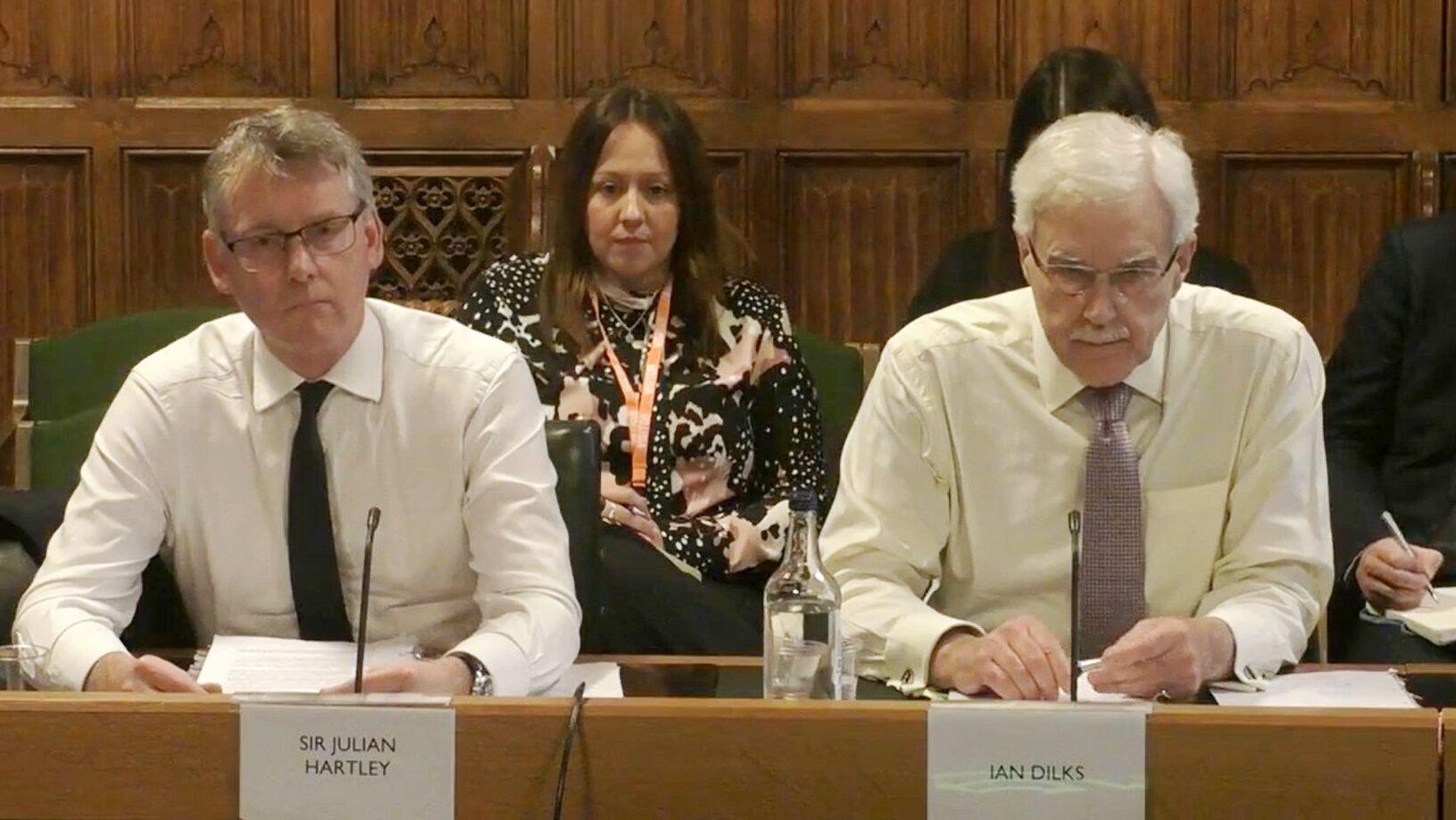Warm words, cold climate
Latest figures show black and minority ethnic staff in the NHS are still denied the same opportunities for promotion and career development as white colleagues. We inestigate why a public service that’s more diverse than ever before is still failing to root out race discrimination.

“It’s time to get uncomfortable, I think,” said Mwamba Bupe Bennett, looking at the latest disappointing data on race equality in the NHS. “When you call people out on their actions, not their words, you learn what they really want to do, rather than what they want to be seen to be doing.”
Mwamba is a senior contracts manager at Dudley Integrated Health and Care Trust, an MiP rep and a Freedom to Speak Up Guardian. She’s one of a dozen or so BME managers who contributed to this story. Most were angry about the lack of progress and frustrated that the warm words of white leaders have made so little difference on the ground. Most spoke on condition of anonymity, so their names have been changed. Sadly, we’re still not comfortable talking openly about race in the NHS.
When the latest Workforce Race Equality Standard (WRES) figures were published in February, NHS leaders were quick to celebrate the fact that the NHS is more diverse than ever before. But look up the hierarchy and that diversity fades away. Less than 10% of executive directors are BME, although including non-executive directors – mostly appointed from outside the NHS – inflates BME board representation to 13%. The NHS’s senior decision makers actually look less like the workforce than they did when the WRES was introduced in 2016.
White candidates are still 54% more likely to be appointed from a shortlist than BME candidates—another metric showing little change since 2016. According to race equality expert Roger Kline from Middlesex University Business School, a white person joining the NHS at Band 5 is twenty times more likely to reach Band 9 than a black person joining at the same level. NHS leaders ought to be ashamed of presiding over a public service which replicates that sort of bias year after year.
Going round the houses
Officially, NHS England said it was “encouraging to see some improvements in the WRES data but it is also clear that there still more work to do”. The NHS Confederation responded in similar vein: “[W]hilst important progress is being made, there’s still much to do to improve the experience of BME staff.”
Such responses didn’t satisfy the BME managers we spoke to. “I just feel we’re going round the houses,” said Hardeep, a manager at a large London trust. “There’s an awful lot being said and done, but there’s no real assessment of how successful previous interventions have been”. The official responses were a “celebration of mediocrity”, added another manager. “The question is, why hasn’t this work been done already? And who was responsible for doing it?”
According to these and other managers, existing approaches fail to tackle the root causes of discrimination, which are often more cultural than managerial, and may fall outside of the formal processes that NHS strategies try to regulate.
“There are unwritten barriers to accessing senior jobs,” explained Mwamba. “Procedures are followed, yes, but what counts is the informal things that make you feel this job is for you or it isn’t. There’s a huge barrier to seeing people from a different background as capable, and a significant element of favouritism. There isn’t enough accountability for when that happens.”
White managers often don’t notice discrimination because they don’t experience the “othering” that BME managers go through, such as being stared at or taken for a more junior member of staff, she said. “It’s like carbon monoxide. You don’t know it’s happening until someone drops, and then you think, oh, what’s happened to them? But it should’ve been picked up a long time ago.”
Kline argues that the NHS needs to rigorously remove these informal barriers. He has called for less reliance on formal interviews in recruitment, more scrutiny of appointment and appraisal decisions and shutting down the “tap on the shoulder” route to career opportunities. “People who are scrutinised change their behaviour, especially if there are consequences,” he says.
An aspiration to promote
A common complaint among black managers is that they have to move jobs more often than white colleagues to progress their careers. “Rather than getting growth in my own organisation, I had to look outside for opportunities,” Hardeep explained. “I don’t really enjoy having to shift every two or three years. You’re constantly on that hamster wheel, with the challenge of familiarisation, building trust and proving yourself again.”
There seems to be an “aspiration to promote” white colleagues, he said, with “opportunities manoeuvred to make that happen, but I have to put in a disproportionate effort to prove myself, despite being more skilled than comparable colleagues. You think, why am I still here in this job knowing I’m working well above the level required?”
There is also evidence that BME managers are more likely to be made redundant or have to compete for jobs during restructuring. Viraj, a manager with a system body, told us that BME staff were “utterly devastated and demoralised” by his employer’s ongoing change programme. “It seems white colleagues have all been slotted into roles, while BME staff are seeing their posts deleted and have to go through this competitive process,” he said. “The new structures look like a very top-heavy white organisation again.”
Suraj, a manager with a Midlands ICB, said experiencing this kind of discrimination year after year can damage a manager’s mental health and wellbeing as well as their career. “It’s all well and good missing out on [promotion] once, but the aggregated effect of this on individuals and cohorts just doesn’t go away. It’s a by-product of this way of working and we’re perpetuating it.”
Heavy lifting
Commenting on the WRES data, the Confed’s Joan Saddler said it’s “imperative” for white leaders to understand that “anti-racism is everybody’s responsibility and that leading this agenda should not be landing solely on the shoulders of those that are impacted by discrimination”.
But, by and large, it does. “The heavy lifting on this stuff is always left to us,” said Amira, an NHS manager actively involved in race equality work. “We’re the ones running the networks, sticking our necks out and raising the issues. I’d really love to hear from a genuine ally in a leadership position who really understands the weathering impact this has on people’s lives. That would be really powerful.”
This is exactly the aim of the White Allies programme run by NHS England in London (see box). Emerging out of the region’s well-regarded race equality strategy, published in 2020, the nine-month programme has already trained around 150 managers at Band 8C and above, including two chief executives and numerous executive directors from NHS bodies in the capital.
“We felt if transformational change was going to happen, it needed to include white senior leaders,” said NHS England’s Samantha Rashid, who led the programme. “We wanted to move away from the deficiency model—that black people have to improve themselves, get coaching, improve their skills and so on. We recognised that, no, it’s about where the power lies, and the reality was that most of our senior leaders were white.”
The programme comes with a “health warning”, she continued. “It’s supposed to be uncomfortable and hard. Your have to be prepared to do the deep work. It’s about seeing differently, responding differently and leading differently.”
Any successful race equality programme needs sustained funding and commitment from senior leaders, she said. “Progress tends to be very slow. We’re trying to dismantle more than 200 years of history… but with many programmes, commitment and funding tends to tail off after a year or two.”
London’s White Allies Programme
Arising out of the 2020 NHS London Workforce Race Strategy, the White Allies programme was developed with the King’s Fund and is delivered by the Birmingham-based equality consultancy Brap. The nine-month programme aims to support white senior leaders “to use their positional power to act as drivers of change”. So far, five cohorts of 30 managers have been through the programme, including chief execs as well financial, improvement and HR directors.
“There was nothing we could buy in off the shelf,” said Samantha Rashid, the programme lead and a co-author of the regional strategy. “We were looking for individuals who identified as white and were willing to do some very deep level work to understand this agenda. It was actually quite emotional, quite hard work. We see the programme as just the beginning of someone’s journey to being an ally.”
Rashid admitted the ‘white allies’ name made some people uncomfortable. “But we don’t have a problem talking about black leadership programmes, do we?” she said. “We called it that because that’s what it’s about.”
Participants worked on a live group initiative that aimed to make a difference in their workplaces. Many chose to re-write their organisation’s recruitment policy—addressing such issues as who sits on recruitment panels and what questions candidates are asked. One trust overhauled their nursing policy as a result of the programme.
“Everybody on the programme we spoke to said it had transformed something within them,” added Rashid. “Some leaders spoke quite movingly about how it’s changed the whole way they look at things, including conversations at home with partners and children, and how they operate in the world.”
Evaluation of the programme is ongoing but NHS England says “early insights show participants found the programme both challenged and stretched their learning, encouraging open and honest discussion as well as supporting effective collaboration”.
- Visit the NHS England website for more information on the London region’s race equality strategy and the White Allies programme.
Deliver equality, not strategies
Such programmes may help to meet the need for white leaders need to take more personal responsibility for, as one manager put it, “actually delivering race equality, rather than more race equality strategies”.
“A lot of programmes just don’t dig deep enough,” said Amira, while some, like the widely-publicised distribution of Iftar boxes during Ramadan, feel like “window dressing“. That was “nice to have”, she said, but it doesn’t add up to “the systemic change” needed. What’s missing, she added, is accountability. “If you’re not hitting the WRES in your organisation, we need to know why, what’s your action plan, and what you’re going to do personally to make it better much, much more quickly.”
Mwamba thinks race equality targets should be part of performance and development reviews for senior NHS aders. “Targets are useful, but let’s go back to why we’re doing this,” she said. “What’s the point of a target with no framework for what happens when you don’t meet it?”
The endless stream of strategies produced by NHS bodies can be a distraction, she believes. “It’s like they don’t really want to change, and no one’s making them do it. Trusts don’t get a choice about dealing with serious incidents—there’s a clear mandate for what happens if they don’t. If NHS England, the CQC and NHS Employers took this as seriously as finance, quality and safety, it would certainly signal that this isn’t just a talking subject anymore, you have to actually live, not just laminate, the values,” she added.
The government has recently been making noises about cutting back on EDI programmes and posts, claiming it wants equality to be “everybody’s responsibility”. But that approach has failed before. Everybody’s responsibility can very easily become nobody’s responsibility.
Most of the NHS’s senior leaders are white. That’s true in trusts, ICBs and system bodies alike. It’s true in every region and nation. That means the people responsible for recruiting, developing and promoting managers are overwhelmingly white. The people responsible for workplace culture in the NHS are overwhelmingly white. The people responsible for policies on discipline, sickness, recruitment, career development, covid response and organisational change—all things that have been shown to disadvantage BME staff—are overwhelmingly white. If the responsibility for race equality doesn’t rest with the NHS’s senior white leaders, where does it rest?
Related News
-

Regulating the managers: more questions than answers
The Labour government’s plans for regulating NHS managers are still shrouded in mystery, and the three options on the table each have their pros and cons. Rhys McKenzie weighs up the choices and gauges the views of MiP members on the best way forward.
-

The inspector falls: why the CQC needs a fresh start
After years of chaos, the Care Quality Commission urgently needs to rebuild trust and credibility with the public and the services it regulates. What needs to change and what are the priorities for new boss Sir Julian Hartley? Alison Moore reports.
-

Voice, value and vision: what analysts need from the NHS
Data analysts play a vital role in an NHS which is increasingly data-driven and focused on public health trends. But the NHS faces fierce competition for skilled analysts and many feel the health service fails to value them or fully use their talents. Alison Moore reports.